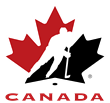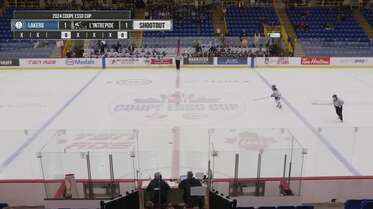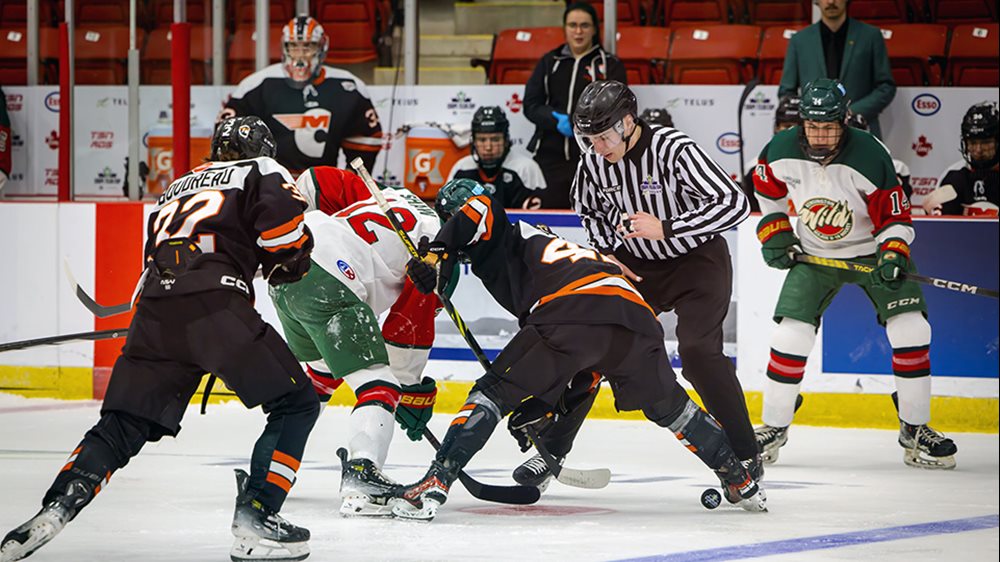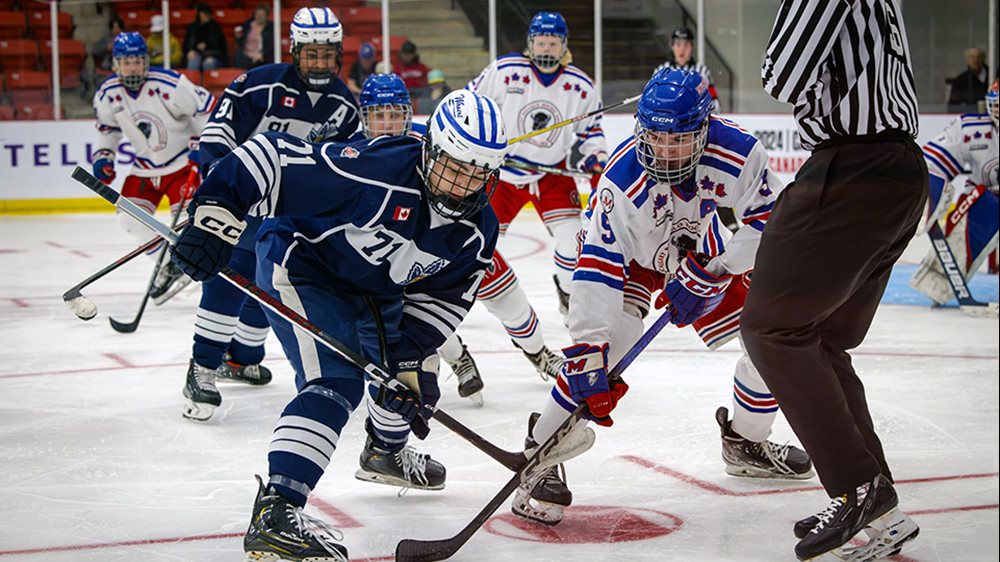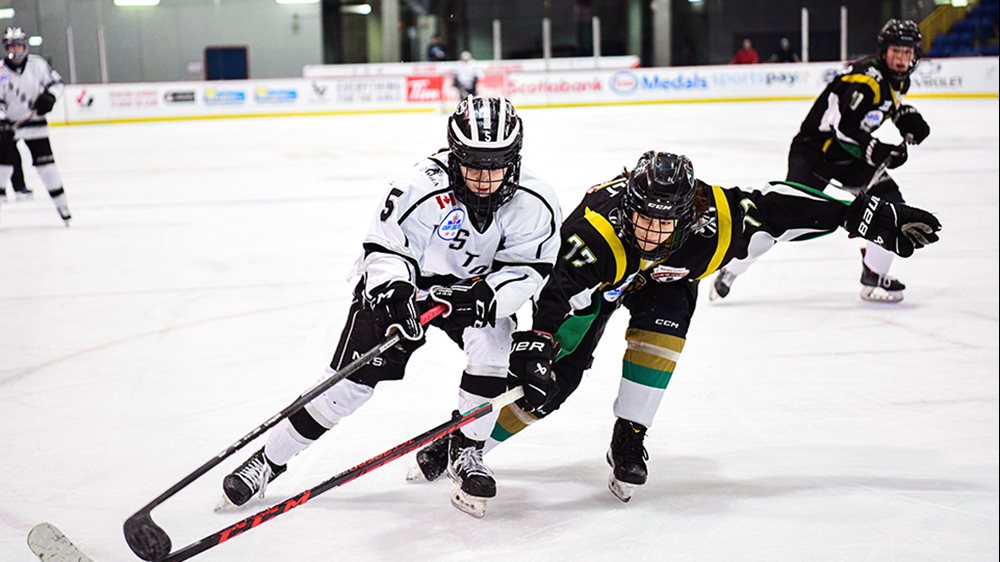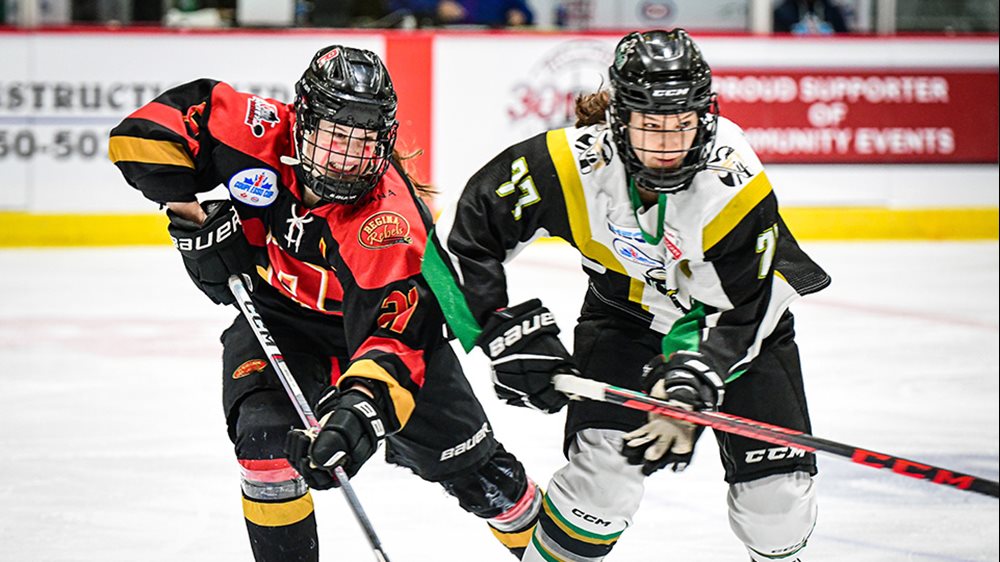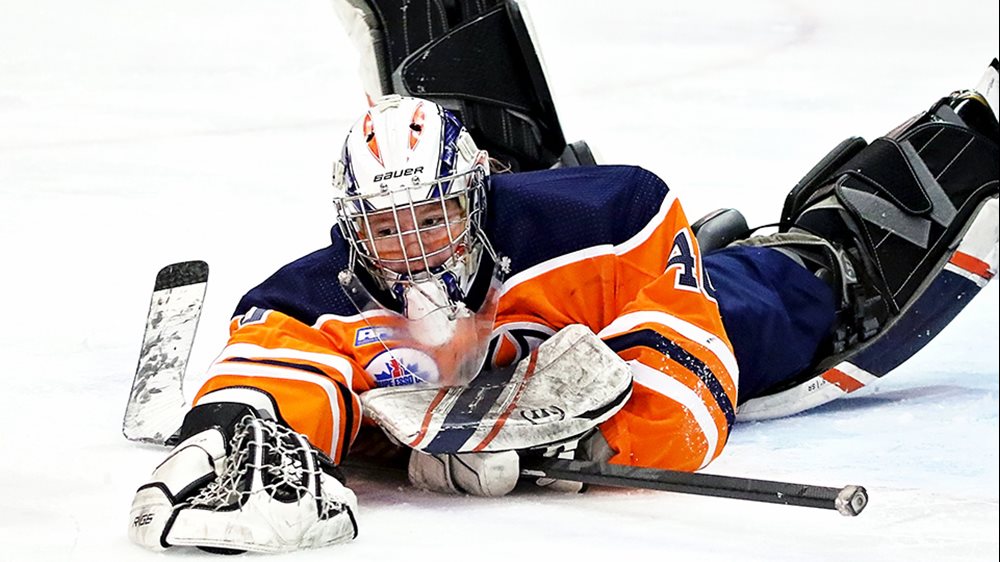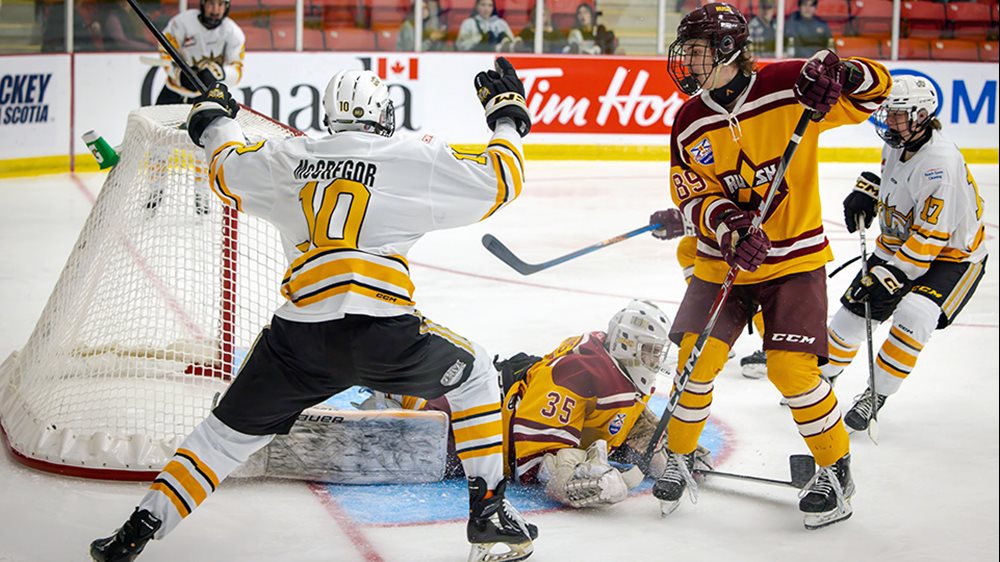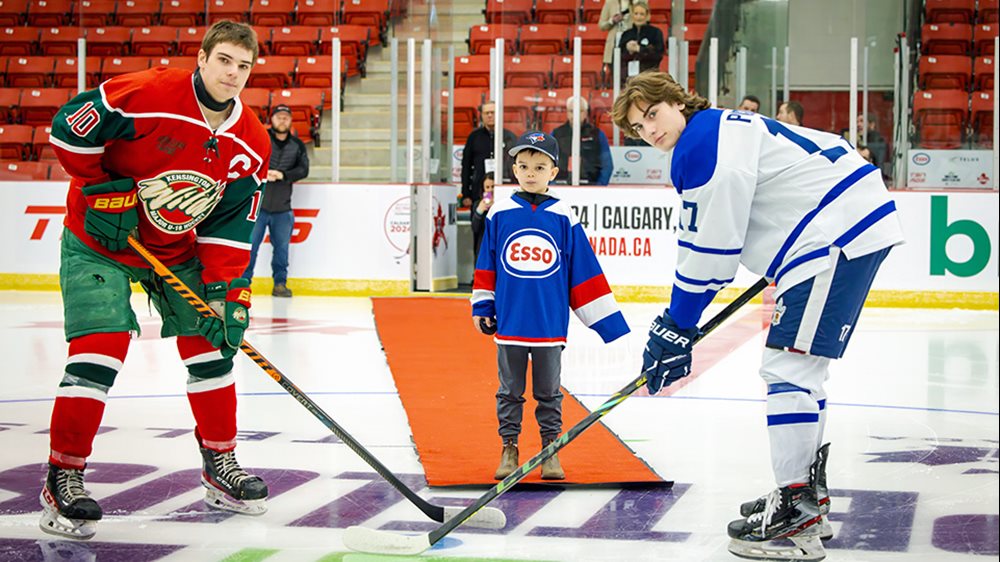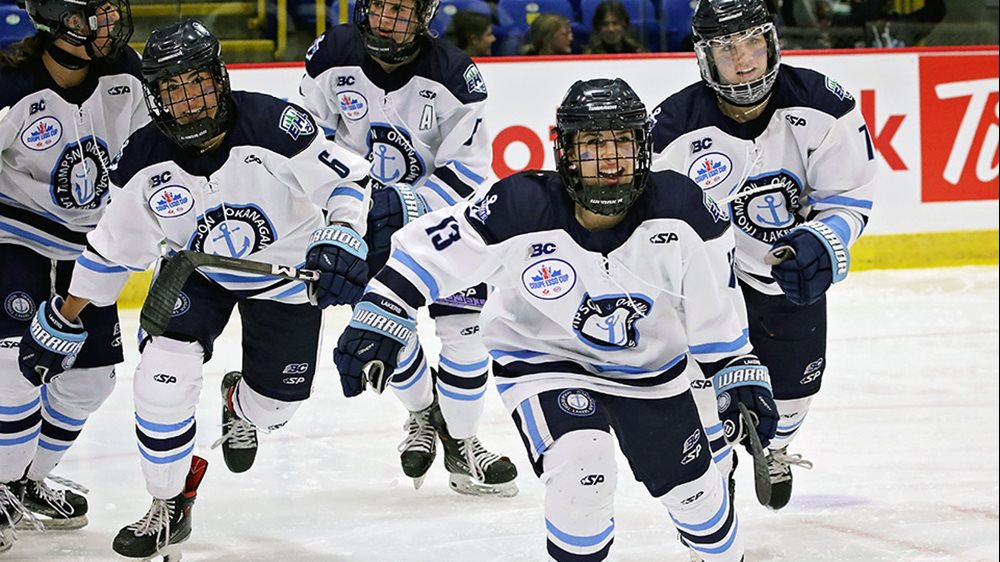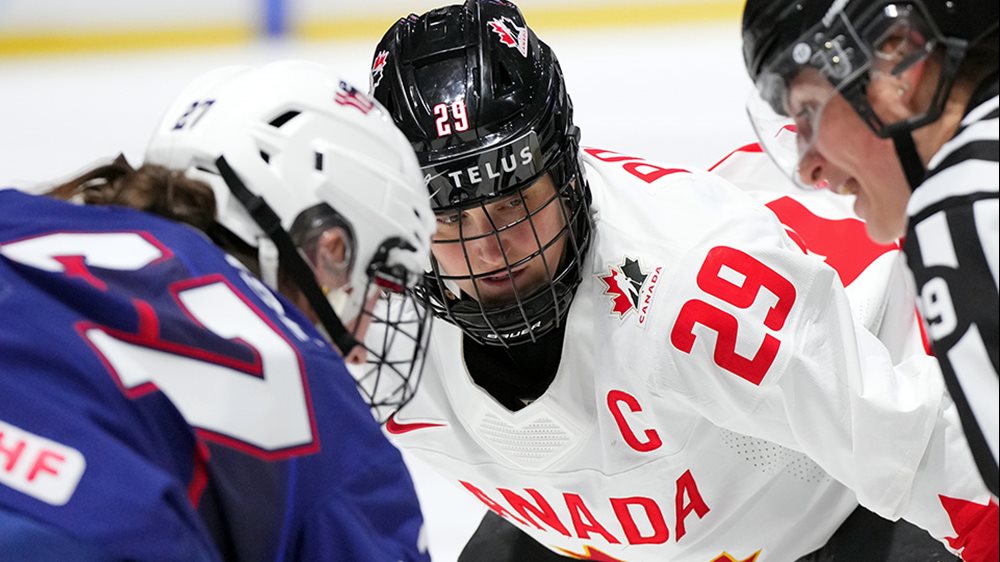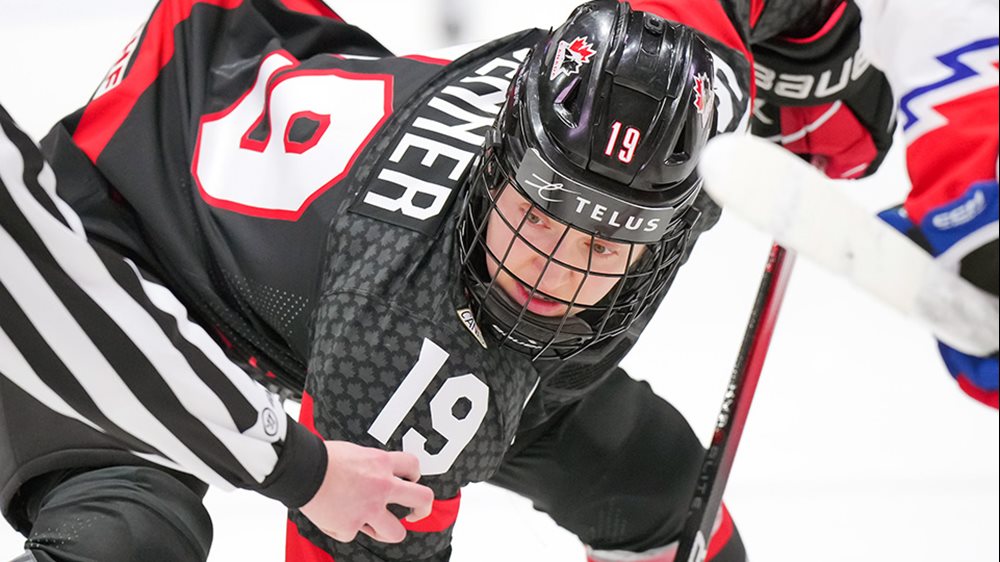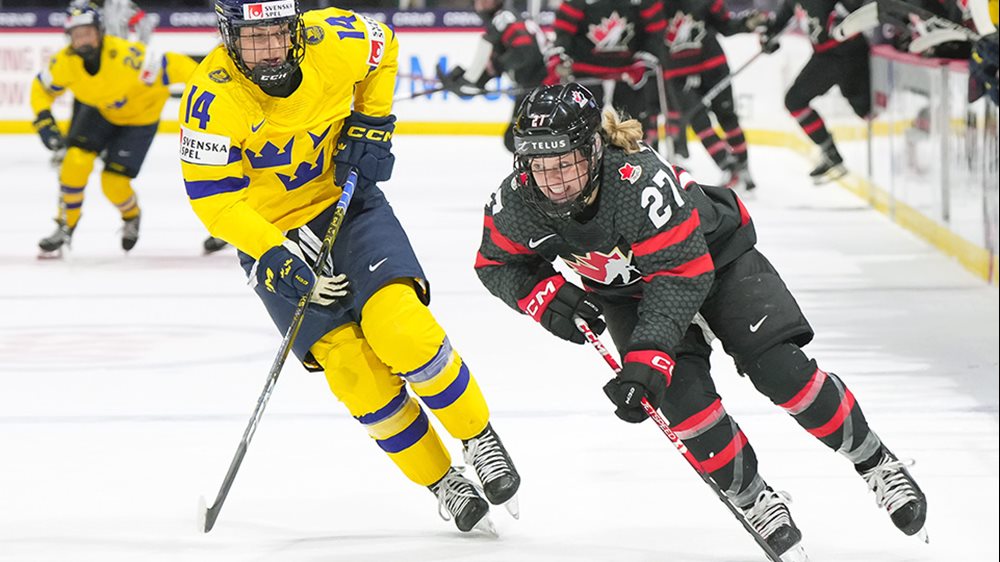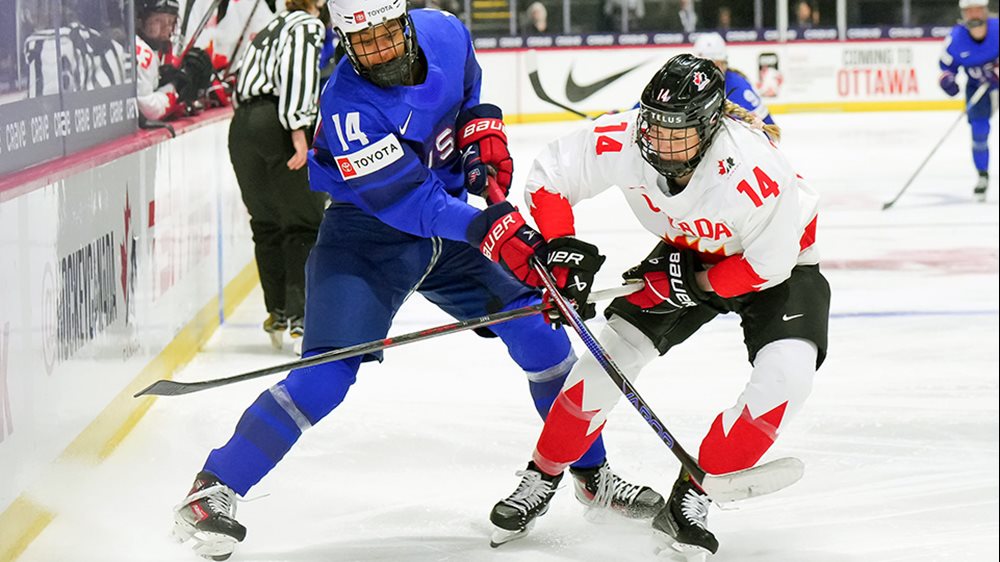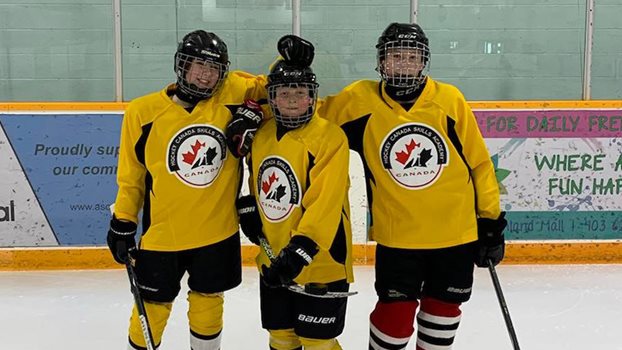
Cheering from Pincher Creek to Beijing
Wearing the Maple Leaf has created a special bond for Hockey Canada Skills Academy participants to Canada’s Olympians and Paralympians competing at Beijing 2022
The 23 students enrolled in the Hockey Canada Skills Academy (HCSA) at Matthew Halton High School are reminded of how they belong to a coast-to-coast-to-coast hockey community every time they don their practice jerseys.
Wearing the iconic Maple Leaf invites these teenagers from the small Southern Alberta town of Pincher Creek to symbolically link arms with Canada’s Olympic and Paralympic hockey teams.
“They recognize that the crest on the jersey in small-town Alberta is the same thing the big names wear,” says Bryan Burns, the HCSA instructor and vice-principal at Matthew Halton. “It really brings forth that spirit of unity and connection. It’s huge for the kids.”
Canada’s quest for Olympic hockey supremacy in Beijing was front of mind for Burns’ students throughout the global sports festival. Burns said his students’ excitement was palpable from preliminary action all the way towards the glorious finish of Marie-Philip Poulin propelling the women to gold with a three-point performance against the United States. That excitement is sure to carry over to the Paralympics, where Team Canada will begin another quest for gold in para hockey starting on March 5.
Matthew Halton’s students hoped one of the games in the medal round would line up with their HCSA class so they could cheer Team Canada in their jerseys. Burns says one student quipped “that being able to watch would be way better than doing math.”
The 15-hour time difference between Pincher Creek and Beijing nullified that possibility. But Burns says there is another way to commemorate Canada’s overseas hockey achievements in upcoming HCSA classes.
“We have an activity made where we are going to watch some of the game footage. We will get the students to point out the examples of good teamwork in the video and how players overcame adversity. Just looking at the women’s team wearing masks while playing. Little things can get in the way of your goal, but you have to focus on it.”
In the days before the Olympics began on Feb. 4, Burns penned a letter to Hockey Canada to express his hope for his students to enjoy the quadrennial tradition.
“One thing that it great about the [Olympics and Paralympics] is that every Canadian hockey fan can highlight a favourite moment from a game they watched at some point in their life. For some the moment is a goal while others it is being with family and friends huddled around the TV with pizza and snacks. For the students at Matthew Halton, I hope that they get the chance to see some amazing hockey and enjoy what hockey is all about…being with great friends and creating memories of a lifetime!”
Burns also expressed appreciation for the aspirational power of the Winter Games. The lone girl enrolled in the HCSA program can watch her television to witness Sarah Nurse set new tournament scoring records with 18 points and 13 assists. The student can be empowered knowing Nurse’s road to becoming an Olympic champion began in minor hockey too.
Canada’s men’s and women’s national teams recognize and appreciate the power of a child—and older fans, too—making the special effort to stay up into the early morning hours to watch their hockey heroes. These athletes routinely thank fans during interviews, share social media posts and make time for autographs and pictures to show gratitude for the deeply passionate Canadian hockey community.
After coming away with silver in an overtime loss to the United States in 2018, Canada’s Paralympic Hockey Team has its eyes on finishing atop the Paralympics podium for the first time since 2006. The students at Matthew Halton may be thousands of kilometers away, but the support and pride they have for Team Canada can be felt across the world.
“We will absolutely wish the best for our athletes,” he says.
Is your HCSA celebrating the Paralympics? Show off your Canadian Paralympic spirit as our team goes for gold by tagging @HockeyCanada on social media.
For more information: |
- <
- >
